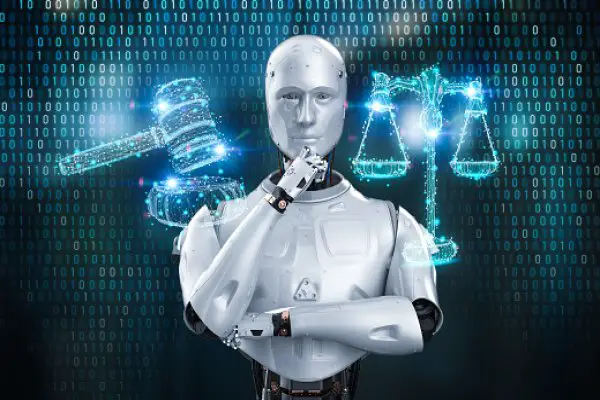The rapid transformation of the work landscape – encompassing both where and when people work and the context of their employment – is being driven by advances in AI and ChatGPT, creating an atmosphere of insecurity among employees regarding the job security that technology might offer.
Fear of AI taking away jobs has caused many workers to be anxious; however, is there a silver lining in embracing this new technology? Can humans overcome this fear and find a positive outcome as the world dives deeper into AI?
At the Institute for Artificial Intelligence of the University of Bremen, in Northwestern Germany, a robot successfully sprinkled cheese over a pizza on the 8th of March 2017.
Understanding Anxiety: What Is Artificial Intelligence-Defined Anxiety?
AI Anxiety is described as an apprehension about the future, where advanced AI technology could lead to computers taking over jobs that humans traditionally did. This uneasiness has been brought about by the increasing sophistication of machines, which can now make decisions that used to be left only to humans.
Technology anxiety had existed since the late 1700s when machines began replacing some jobs in the textile industry. The idea of people feeling anxious about technology is a type of this phenomenon.
AI anxiety, in a nutshell, is the apprehension that computer-generated decisions may end up being detrimental to the humans of the future. This could potentially be caused by computers taking over roles traditionally held by people or causing decisions and actions that lack empathy or fail to take human values into account.
The concern of people such as Elon Musk, Bill Gates, and Stephen Hawking about AI is that the irreparable effects it might inflict are far-reaching; computers are already beginning to take over many decision-making tasks.
Overcoming Fear Of The Unknown With AI-Based Anxiety Solutions
Fuelled by the rate of development within generative AI tools such as OpenAI’s ChatGPT and the increasingly competitive nature of the ‘AI arms race,’ a BBC report has addressed fears held by many about their work, with anxiety surrounding potential job loss caused by automation.
The speed of technological development can be intimidating, and the lack of information regarding how AI may be utilized evokes a feeling of apprehension.
The introduction of AI in certain industries has raised genuine concern over job losses, as evidenced by the Rest of World piece, which uncovered how video game artists in China had been replaced by automated digital art. Further investigation suggests that this fear is well-founded, with publishers employing AI to create content without making it public knowledge.
Employees do not have to experience a sense of “existential dread” regarding AI. People can choose how much they worry: either letting the anxiety take its course or learning more about the technology and using it to their benefit.
The potential of technology to streamline or automate work processes has become apparent as it has advanced, according to Scott Likens, an expert on trust and technology-related topics.
People should enable themselves to learn and develop new skills to understand what AI can do for their roles, thereby reducing their anxiety around the quickening pace at which AI is being adopted. Possessing the right set of skills will help them to keep up with changes brought about by technological advancements.
Disruptions in the industry are nothing new; people have successfully adapted from automation to eCommerce to retail. Technology has always been a key part of the progression of society. People may be apprehensive about introducing AI, but it is here to stay.
Rather than giving in to anxiety, it is far better for employees to take a positive outlook and take active steps to develop their skills. By doing so, they will be more resilient against AI’s impact than those who allow fear of technological advancement to control them.
The future of work in an AI-driven economy is not predetermined. It is up to us to shape it to benefit everyone. We can create a more equitable and prosperous future for all by embracing AI’s opportunities while addressing its challenges.
Source: Science Times



